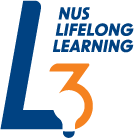Objectives
This course covers advanced methods for the design, conduct, analysis, and interpretation of epidemiologic studies. Students will apply these methods to the interpretation of published research and the design of a new research project. The main focus is on analytical studies that aim to identify risk factors for diseases. Topics include study designs, causal inference, biases, methods of handling confounding and identifying effect modification. Students will be expected to critique research articles and participate in facilitated group discussions.
Upon completion of this course, you will be able to:
1. Evaluate the strengths, limitations, and principles of various study designs for their applicability in epidemiological research.
2. Identify and mitigate potential sources of bias through appropriate study design and rigorous conduct of epidemiological studies.
3. Recognise and address confounding and effect modification in both the design and analysis phases of epidemiological studies to understand their implications on study findings.
4. Critically evaluate the quality of epidemiological research articles, extracting key findings and interpretations from the scientific literature.
5. Articulate considerations for causal inference, and utilise models of causality, causal diagrams, and instrumental variables to infer relationships between exposures and health outcomes.
6. Translate epidemiological findings into public health policy by understanding important considerations and implications.
7. Formulate a research grant application, incorporating epidemiological methods to design a rigorous research study addressing pertinent public health questions.


